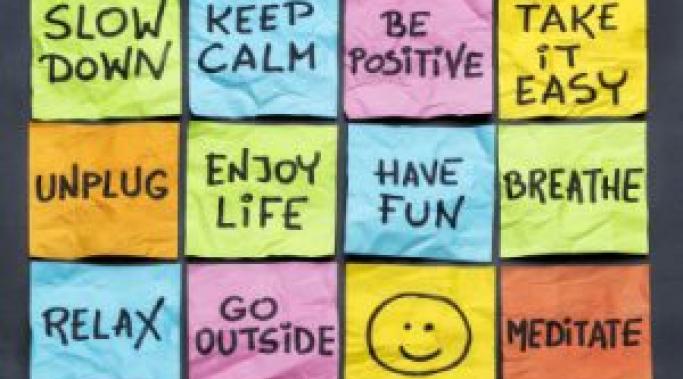Something I always stress to people is that eating disorder recovery is not always a linear process and slips in eating disorder recovery happen. This is unfortunate, but something we need to be aware of. Throughout my recovery journey, I fell back into old disordered eating behaviors countless times before long-term abstinence from binging was able to occur. Here's how to deal with slips in eating disorder recovery.
Binge Eating Coping Skills
Secrecy in binge eating disorder is huge. I was once told that eating disorders were all about secrets and lies. As I ponder that thought, I cannot think of anything more accurate. When consumed by binge eating disorder, I did everything in secret, never letting anyone into the reality of my life. I snuck food, lied about what I was eating, and denied any comments about my behavior. I wish I would have known then that the secrecy of my binge eating disorder was only digging me deeper into my dark hole.
Holidays in binge eating recovery can make the season even more anxiety-triggering. This time of year is especially food-filled and it can be tempting to dig in full force. It is important to remember what you are working towards and keep on your path toward binge eating recovery even during the holidays.
There is a great deal of misunderstanding when it comes to food, and those food myths hinder binge eating disorder (BED) recovery. It can be what the "healthiest" thing is to eat or the latest diet fad. When recovering from an eating disorder, we need to remember that current food fads are usually not the best for us. We know better and need to ignore what the trends are and stick to the balanced eating plan which keeps us from using behaviors. Watch for food myths in your binge eating disorder recovery.
The grocery store can be a place full of anxiety for those who suffer from any type of eating disorder. Even in recovery I can still become overwhelmed when I have to make my weekly shopping trip. Over time I have found effective anxiety coping skills that help me navigate the aisles and lessen my anxieties.
Many times binge eating and binge eating disorder (BED) is coupled with intense loneliness and people wonder if they are the only one who binge eats. It is time we who suffer realize we are not alone. There are millions of others who are right here, going through the same thing. If we can create a community and engage in conversation around our binge eating behaviors, we can start to free ourselves from the burden of shame along with our feeling of loneliness associated with BED.
In my experience, anxiety and binge eating disorder (BED) go hand-in-hand. Through years of treatment, I have learned how to manage my anxiety and properly and to use positive coping skills which have freed me from the need to binge eat. I've found you can cope with anxiety with binge eating disorder.
At times, you may want to seek support from someone else with binge eating disorder (BED). A BED support system can be vital to your recovery and talking to someone who has had similar experiences can be incredibly helpful. Support systems can also include online support from people who have binge eating disorder. The support from someone else with binge eating disorder can fit your needs exactly.
Binge eating disorder (BED) can overtake your entire life, so how do you cope with binge eating disorder at work? Sometimes work can help you deal with symptoms, other times it can trigger them. Learning how to cope with your binge eating disorder at work is a difficult part of your binge eating recovery journey.
Occasionally, people tell me they're too busy to eat, even with binge eating disorder. But self-care is not about having extra time in your day to care for yourself, it's about designating time in your day to make sure you do the basic tasks you need in order to be healthy (Practicing Self-Care Is Hard But Vital For Mental Health). In this day and age we're all busy people, but eating regular meals is not a luxury. It's a necessity. Even if you're "too busy" you need to eat with binge eating disorder.









